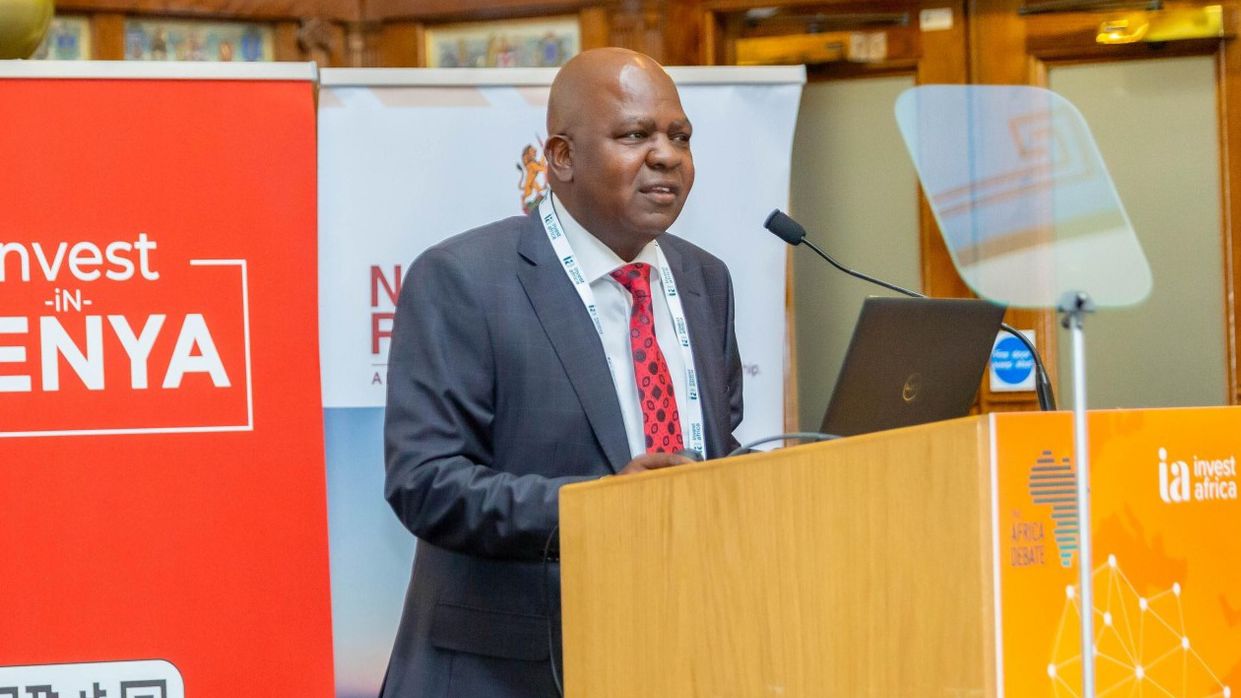The Ministry of Agriculture and Livestock Development has announced that it is working with the National Treasury on a plan to lease the Pyrethrum Processing Company of Kenya (PPCK).
This emerged as the Cabinet Secretary, Mutahi Kagwe, appeared before the Senate plenary on Wednesday, November 19, to respond to questions on the decline of the once-thriving sector.
He told the Senate that his ministry is pursuing the leasing of the company, arguing that it is the only viable path to stabilising and growing the enterprise.
The probe was triggered by concerns raised by Kisumu Senator Prof. Tom Ojienda who sought clarity on the status of pyrethrum farming, market prospects and the future of the sub-sector.
Kagwe defended the government’s approach and noted that ongoing reforms were gradually restoring confidence in the industry, which was once one of Kenya’s top foreign-exchange earners.
Read More
He explained that Homa Bay County does not meet the ecological thresholds required for pyrethrum cultivation.
"Homa Bay County is not a pyrethrum-growing zone since the climatic conditions are not favourable," he said, detailing altitude, rainfall and temperature conditions that fall below the crop’s required standards.
Kagwe further noted that the county government had confirmed this position in a letter dated May 28, 2025.
He outlined that suitable pyrethrum zones remain in the highland regions of the North Rift, South Rift, Central, Eastern and counties such as Kisii and Nyamira.
On reforms, Kagwe said the government was focused on distributing clean, high-quality planting materials to boost productivity.
He noted that millions of seedlings and clonal materials had already been supplied to counties including West Pokot, Elgeyo Marakwet, Nyandarua, Nakuru and Kericho.
Kagwe added that the state was strengthening public-private partnerships with companies such as Botanical Extracts, Kentegra Biotechnology and Africhem Technologies.
"We are encouraging the participation of the private sector in the growing and processing of pyrethrin to make the sub-sector more competitive," he told Senators.
Kagwe also disclosed that the government allocated Ksh105 million to PPCK in the 2024/25 financial year and Ksh125 million in the current year.
However, he admitted the funds were not adequate to revive the pyrethrum industry, though the ministry was using the available resources to sustain ongoing reforms.
Addressing delays in farmer payments, Kagwe said AFA was regulating all sector players to ensure prompt remittances based on pyrethrin content.
"PPCK had adopted an advance-payment model, but the advance is meant to cushion growers and enable them to manage agronomic practices, but this is not happening due to cashflow constraints," he said.

On planting materials and extension services, Kagwe noted that laboratories in Muguga and Molo were multiplying clonal materials for distribution to farmers.
"We are multiplying clonal materials through tissue-culture technologies to ensure farmers access clean planting materials," he stated.
Kagwe reported that PPCK generates about Ksh35 million annually, occasionally rising to Ksh60 million, but is burdened by an accumulated debt of Ksh3.5 billion.
This comes weeks after the government set March 31, 2026, as the completion date for the privatization of the Kenya Pipeline Company (KPC).
In a notice on Thursday, October 9, Privatization Commission Chairman Faisal Abass confirmed that the process has cleared all major procedural and legal hurdles following cabinet and parliamentary approvals.
"Following the approval of the Privatization Method for the Kenya Pipeline Company (KPC) Limited (hereinatter referred to as the Company) by the Cabinet, the subsequent tabling of the requisite Report in the form of a Sessional Paper before the National Assembly by the Cabinet Secretary for the National Treasury and Economic Planning, and the approval thereof by the National Assembly on 1st October 2025, and in accordance with the provisions of Section 30 of the Privatization Act, 2005, the Privatization Commission hereby gives notice of the approved transaction," the notice read.
Abass confirmed that the transaction would be executed through the stock market, allowing Kenyan citizens and institutions to buy shares directly.
"In compliance with Section 25 (a) of the Privatization Act, 2005, the National Assembly has approved the privatization of Kenya Pipeline Company (KPC) Limited through an Initial Public Offer (IPO) of shares on the Nairobi Securities Exchange (NSE)," the notice added.
While approving the return of Kenya Pipeline to the privatisation programme, the Cabinet said the move is part of a policy shift by the government to reduce direct involvement in commercial enterprises and instead let private players take the lead.
"The Cabinet gave the green light for the reinstatement of Kenya Pipeline Company (KPC) into the privatisation programme, paving the way for partial divestiture of government shares in a move aimed at democratising ownership by Kenyans at the Nairobi Securities Exchange and unlocking the company’s full commercial potential.
"The decision reflects the government’s policy shift toward reducing its role in doing business and instead enabling the private sector and industry experts to drive growth, efficiency, and innovation," a report from the Cabinet read.
The Cabinet noted that although KPC is profitable, it is yet to achieve its full market potential due to management challenges in the public sector.
"KPC, a strategic player in Kenya’s energy supply chain, has maintained a strong profitability record and holds significant asset value. However, the Cabinet noted that the company has not yet reached its optimum performance and market value, largely due to bureaucratic constraints and public sector inefficiencies.
"Bringing in private capital and professional expertise is expected to inject new energy into the company, modernise operations, and position KPC as a regional logistics and energy powerhouse," the report further read.






